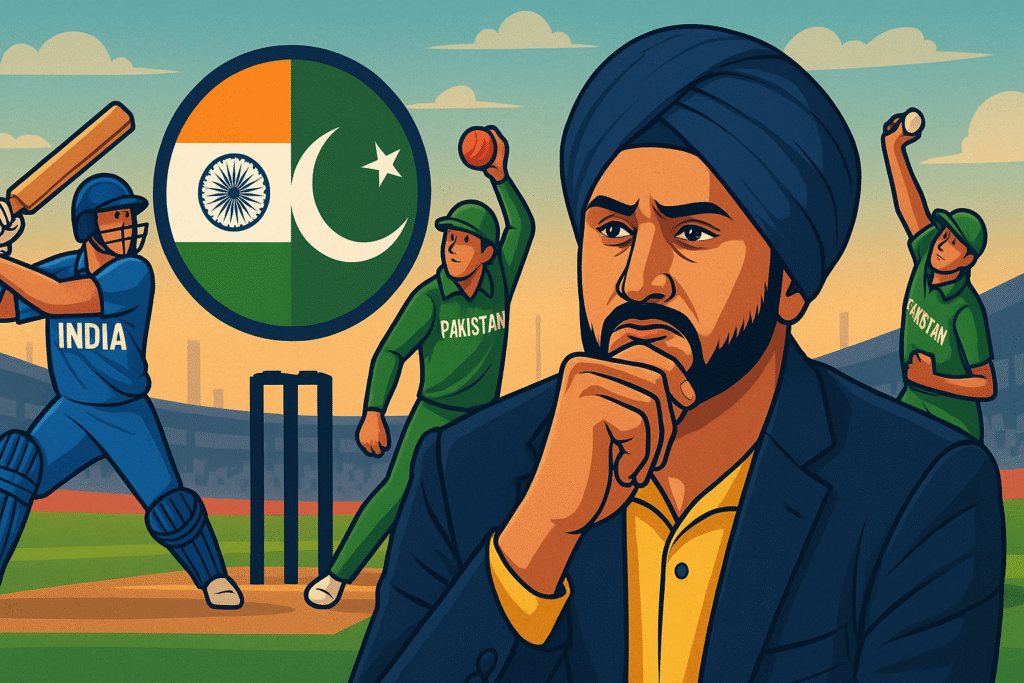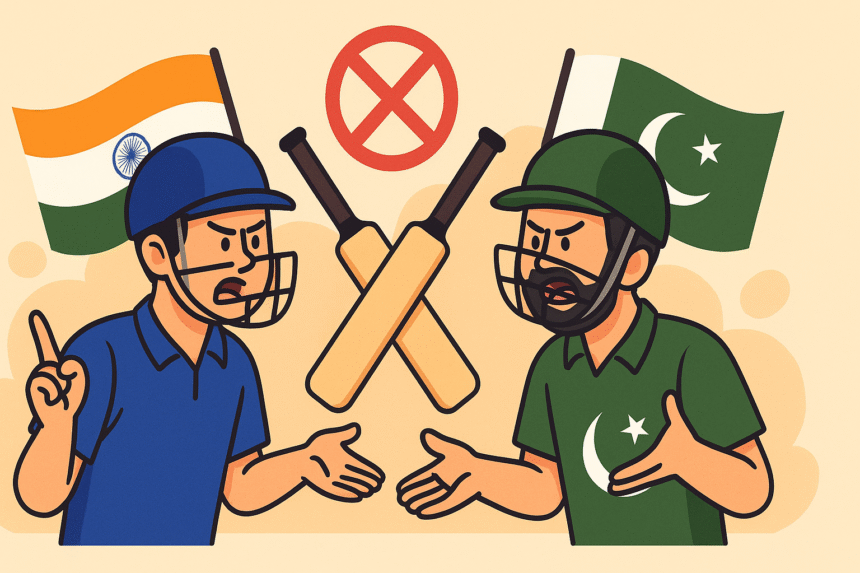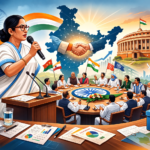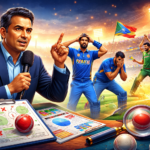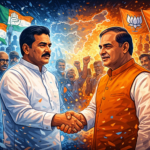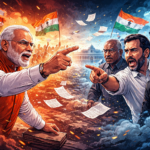India outlines a strong sports policy on Pakistan. No bilateral matches, only multilateral events. What it means for Asia Cup 2025.
- The Hook: A Rivalry Beyond Cricket
- What the Policy Says—In Simple Words
- Why This Policy Now?
- What It Means for Asia Cup 2025
- Fans React: More Than Just Cricket
- Beyond Cricket: Other Sports Too
- India’s Sports Diplomacy Game
- Critics vs Supporters
- The Bigger Picture: Sports as Soft Power
- Punchy Wrap-Up
- Suggested Related Post
When cricket meets geopolitics, the scoreboard isn’t just about runs—it’s about rules.
The Hook: A Rivalry Beyond Cricket
Let’s be honest. Whenever you hear “India vs Pakistan,” do you picture anything other than cricket fever, nail-biting overs, and divided living rooms? But this time, the match isn’t just on the pitch—it’s in the corridors of the Ministry of Youth Affairs & Sports (MYAS).
India has issued a strong new sports policy that sets clear rules on how the country will engage with Pakistan in the sporting arena. Spoiler alert: No, bilateral cricket tours aren’t making a comeback.
And before you imagine an empty stadium, hold on—India will still play Pakistan in international tournaments like the Asia Cup and World Cup. The drama continues, just with new boundaries.
(For context, even the International Cricket Council (ICC) has guidelines on how bilateral ties affect cricketing schedules. You can read more about how ICC tournaments are structured.
What the Policy Says—In Simple Words
Here’s the TL;DR version of the new Indian sports policy regarding Pakistan:
- No bilateral sports: Indian teams will not play in Pakistan, and Pakistani teams can’t compete in India in one-on-one matches.
- Yes to international tournaments: Both teams can face each other in events like the Asia Cup or ICC World Cup if hosted by a neutral venue.
- No home advantage: Pakistan can’t host Indian teams, and India won’t allow Pakistani teams to play on Indian soil in bilateral contests.
- Multilateral green light: If it’s a big event with multiple nations, both sides can still meet—just not directly arranged tours.
Why This Policy Now?
This move isn’t out of the blue. It comes against the backdrop of a terror attack in Pahalgam, Jammu & Kashmir (April 22, 2025), where 26 tourists were killed. The attack was linked to Pakistan-based militants.
India responded with Operation Sindoor, targeting terrorist networks across the border. Since then, tensions have only escalated. Naturally, this influenced how the government views sports ties.
And if you thought sports and politics should stay separate—welcome to South Asia, where even a toss can feel political.
What It Means for Asia Cup 2025
Now, here’s the million-dollar question: What happens to the Asia Cup 2025?
- India will play—but not in Pakistan.
- If the Asia Cup is hosted in a neutral venue (say, Sri Lanka or UAE), India is in.
- If Pakistan insists on hosting, things get tricky. India won’t travel there.
This isn’t new. Remember the 2018 Asia Cup? It had to move to the UAE because India refused to play in Pakistan. History, as they say, loves a sequel.
Fans React: More Than Just Cricket
The India-Pakistan rivalry is more than just about cricket—it’s about history, politics, and a little bit of family drama at every dinner table.
Some fans are relieved, citing national security. Others feel robbed of the electric thrill that only an Indo-Pak bilateral series can bring.
One witty fan on social media summed it up:
“Asia Cup without India-Pak match is like biryani without masala—technically there, but not quite spicy enough.”
Beyond Cricket: Other Sports Too
This policy isn’t just about cricket. It extends to all sports:
- No hockey friendlies.
- No kabaddi face-offs.
- No badminton tours.
But just like cricket, if these games happen under the Olympic, Asian Games, or World Cup umbrellas, Indian and Pakistani athletes will still cross paths.
India’s Sports Diplomacy Game
The government is also making India more attractive for global sporting events. Special multi-entry visas for athletes and officials (lasting up to five years!) are being rolled out.
This isn’t just about cricket diplomacy—it’s also about positioning India as a credible venue for mega tournaments. Hosting rights bring prestige, revenue, and soft power.
Think of it this way: while India closes the door on bilateral matches with Pakistan, it’s opening a red-carpet entrance for the Olympics, FIFA events, and ICC tournaments.
(For perspective, check out how the Olympics handle international participation and how countries balance politics with play.)
Critics vs Supporters
Like every policy, this one has fans and critics.
Supporters argue:
- National interest and security come first.
- Sports can’t be a blind spot for terrorism.
- India still plays in international events, so the spirit of competition lives on.
Critics counter:
- Sports should be above politics.
- Young fans are deprived of legendary matches.
- Bilateral matches build bridges better than speeches.
The debate is far from over. But one thing is clear: the government wants consistency. No on-off sports relations depending on moods—this is now a structured stance.
The Bigger Picture: Sports as Soft Power
This isn’t just about cricket or even Pakistan. It’s about how India positions itself globally.
- By simplifying visas for international sports officials, India is wooing global bodies.
- By banning bilateral matches with Pakistan, India is sending a strong political signal.
- By hosting major tournaments, India strengthens its claim as a sports powerhouse.
It’s a mix of sports strategy and foreign policy—and India is playing both games carefully.
Punchy Wrap-Up
India vs Pakistan will always be more than just about bat and ball. It’s about pride, politics, and policy. This new rulebook ensures that while the rivalry continues on global stages, bilateral tours are firmly off the table.
So yes, the Asia Cup 2025 may still see India and Pakistan clash—but don’t expect a “friendship series” anytime soon.
In this match, the boundary isn’t just on the field—it’s drawn by the government.
Do you think sports should stay away from politics—or is this policy the right call? Drop your thoughts in the comments, share this with your cricket-crazy friends, and subscribe for more deep dives into sports and geopolitics!
Suggested Related Post
“India vs Pakistan Asia Cup 2025: Harbhajan’s Bold Call”
